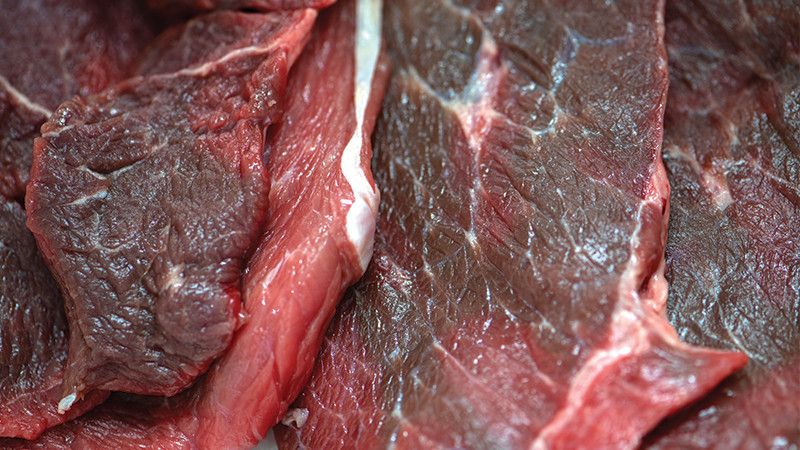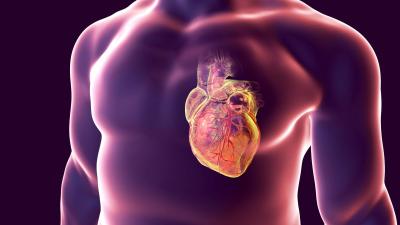Meat and Stroke

A 2019 report from the EPIC-Oxford study showed that meat-eaters were more likely to have heart disease but less likely to have a particular kind of stroke, called a hemorrhagic stroke, compared with vegetarians.1
Hemorrhagic stroke refers to bleeding in the brain. The part about meat-eaters being more likely to have heart disease is no surprise. But what about stroke? Are meat-eaters somehow better off?
In a word, no. A 2016 meta-analysis showed that meat-eating increases the risk of ischemic stroke, which is the common type of stroke caused by a loss of blood supply to the brain.2 Studies focusing on vegetarians have shown a lower risk of stroke, compared with meat-eaters, although the difference is small and could be due to chance.3,4
Apart from meat, eggs also contribute to stroke risk. In the Atherosclerosis Risk in Communities (ARIC) Study, researchers followed the diets of 11,601 participants. Those who consumed the most eggs had a 41 percent increased risk for hemorrhagic stroke, compared with those who consumed the least.5
So, what about the new study? Well, it was not a randomized trial in which volunteers are assigned to groups and care is taken to ensure that the comparison groups are very similar. In this observational study, volunteers diverged on certain points. The meat-eaters were more likely to be taking medications to lower their cholesterol and blood pressure, and they were also somewhat older. And the vegetarians ate more cheese—29% more than the meat-eaters. This is of concern, given that cheese is high in sodium (higher than potato chips, gram for gram), which is a leading contributor to stroke risk.6 Cheese is also high in saturated fat, which, along with sodium influences blood pressure and stroke risk.7 Because of these differences, the UK cohort may not be representative of populations elsewhere.
A 2016 report combining the results of the EPIC-Oxford cohort with the Oxford Vegetarian Study did not find a significantly higher risk of dying of a stroke among vegetarians or vegans, compared with meat-eaters.8 The new report zeroed in on hemorrhagic strokes. Luckily, these strokes were rare. In contrast to the headlines, there were actually fewer hemorrhagic strokes among vegetarians than meat-eaters. The actual risk was 0.00032 per person-year among vegetarians, compared with 0.00039 per person-year among meat-eaters. In other words, hemorrhagic strokes were slightly more common among meat-eaters and less common among vegetarians. However, the researchers then made various statistical adjustments for age and other factors (which may have been entirely appropriate), which led to the report that this particular kind of stroke would be expected to occur less frequently among meat-eaters.
Meat, eggs, and animal products in general are associated with heart risk, stroke risk, and many other health problems. It pays to avoid them. Adding meat to one’s diet will not make it healthier. Plant-based diets, especially vegan diets, help us control the risk factors for stroke, such as body weight and blood pressure, and in most studies, vegetarians and especially vegans have an advantage.
References
- Tong TYN, Appleby PN, Bradbury KE, et al. Risks of ischaemic heart disease and stroke in meat eaters, fish eaters, and vegetarians over 18 years of follow-up: results from the prospective EPIC-Oxford study. BMJ. 2019;366:l4897
- Yang C, Pan L, Sun C, Xi Y, Wang L, Li D. Red meat consumption and the risk of stroke: a dose-response meta-analysis of prospective cohort studies. J Stroke Cerebrovasc Dis 2016;25(5):1177–86.
- Key TJ, Fraser GE, Thorogood M, et al. Mortality in vegetarians and nonvegetarians: detailed findings from a collaborative analysis of 5 prospective studies. Am J Clin Nutr 1999;70(Suppl):516S-24S. doi:10.1093/ajcn/70.3.516s
- Dinu M, Abbate R, Gensini GF, Casini A, Sofi F. Vegetarian, vegan diets and multiple health outcomes: A systematic review with meta-analysis of observational studies. Crit Rev Food Sci Nutr 2017;57:3640-9. doi:10.1080/10408398.2016.1138447
- Haring B, Misialek JR, Rebholz CM, et al. Association of dietary protein consumption with incident silent cerebral infarcts and stroke: the ARIC study. Stroke. Published online October 29, 2015.
- Micha R, Peñalvo JL, Cudhea F, Imamura F, Rehm CD, Mozaffarian D. Association between dietary factors and mortality from heart disease, stroke, and type 2 diabetes in the United States. JAMA. 2017 Mar 7;317(9):912-924.
- Tong TYN, Appleby PN, Bradbury KE, Key TJ. Cross-sectional analyses of participation in cancer screening and use of hormone replacement therapy and medications in meat eaters and vegetarians: the EPIC-Oxford study. BMJ Open 2017;7:e018245. doi:10.1136/bmjopen-2017-018245
- Appleby PN, Crowe FL, Bradbury KE, Travis RC, Key TJ. Mortality in vegetarians and comparable nonvegetarians in the United Kingdom. Am J Clin Nutr 2016;103:218-30. doi:10.3945/ajcn.115.119461







